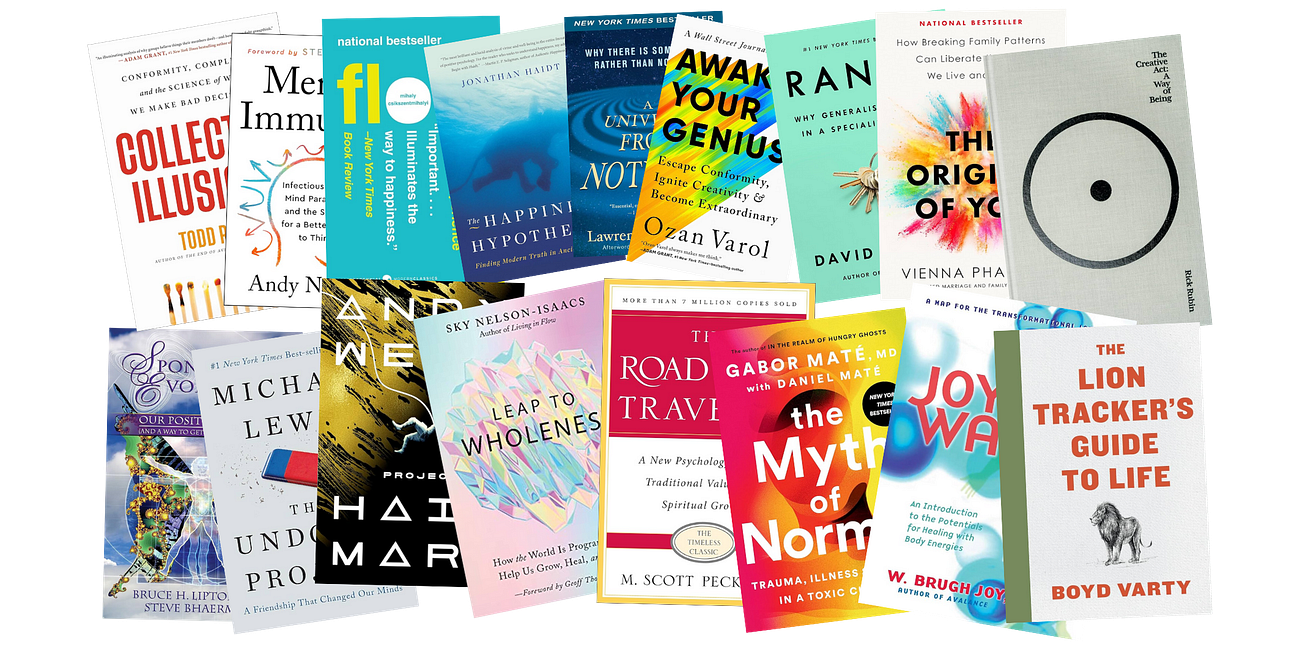Builders vs Dismantlers: Why I Broke Up With Feminism and the Modern Left
I used to be the kind of person who wouldn’t even consider voting Republican. What a dirty word! I was steeped in progressive values from the start. California-born, women’s studies major (yes, really), raised on NPR, anti-war protests, and the assumption that the Left was the side of the builders—the progressives, the intellectuals, the solution-makers. Voting Democrat wasn’t just a political choice; it was a cultural identity. It was the default. And feminism wasn’t just an academic interest; it was a moral compass, a lens I applied to everything. For a long time, I never imagined I’d vote for anyone but a Democrat. And for twenty years, I didn’t.
But over time, the cracks started to show. Not all at once, not in some dramatic awakening, but in small, almost imperceptible moments of discomfort. A growing sense that something no longer added up. I now see it was death by a thousand cuts.
The shift began in earnest during the MeToo era. I believed women. I supported accountability. I wanted justice. But then I started seeing something else… something harder to name. A kind of glee in destruction. Men getting canceled not because they were predators, but because they were awkward on dates. Careers nuked off Twitter threads. No due process. No conversation. No proportionality. No path back.
What began as a movement for safety and empowerment became a demolition squad. And if you even asked questions? Well, you were next. MeToo taught me that the Left no longer values nuance.
That’s when I started to see the dismantlers clearly. Because if you questioned anything about how the movement operated—if you suggested that maybe not every accusation was automatically true, or that reputational death should require at least some evidence—you were branded a traitor.
It didn’t matter how much you supported women’s rights or how deeply you cared about consent and safety. The only acceptable posture was blind loyalty. And that’s not justice. That’s religion.
That was the beginning of the foundation cracking. Not because I stopped believing in equality, but because I realized the movement I had trusted was no longer interested in truth. It was interested in power. And power, when it’s unearned and self-righteous, becomes destructive fast.
The first real fracture came from an absurdly simple observation: the men I admired—many of them, anyway—were builders. They created things. They invented, scaled, and led. They were flawed, of course, but they were generative. They built companies, movements, systems, empires. And when I looked to women for the same energy, I found far fewer examples.
This wasn’t something I could admit publicly on the Left. To even say it out loud—to say that men were showing up as the builders, and that I admired them for it—risked being labeled a “bad feminist.” You’re not supposed to notice patterns like that. And you’re definitely not supposed to respect them. God forbid you say that many feminist spaces feel more invested in dismantling than in building, which is the conclusion I was quickly approaching.
It took years to fully admit that the Left had lost me. Even longer to realize that I wasn’t the one who changed, but they had.
What started as unease with feminism’s dismantling energy quickly became something bigger. I started noticing the same pattern bleeding out into the broader Left. The same allergy to nuance. The same instinct to flatten everything into oppressor vs oppressed. The same performance of compassion that quickly turned to cruelty if you asked the wrong question.
Then 2020 hit and everything broke wide open.
COVID was the accelerant. What should’ve been a public health challenge became a moral sorting hat. Suddenly, everything was political: masks, school closures, vaccines, even being outdoors. The same people who once screamed “my body, my choice” were now shaming mothers for letting their kids play on a jungle gym.
I watched the institutions I once trusted implode in real-time. Science twisted into political theater. Lockdowns enforced with smug superiority. Basic questions treated like conspiracy. It didn’t feel like science, it felt like ritual. Like submission disguised as solidarity.
And then came George Floyd.
The summer of 2020 turned into a nationwide exorcism, and not in a good way. Overnight, everyone was posting black squares. White friends were publicly confessing their privilege. Corporations were pledging millions to vague DEI initiatives. And if you didn’t post, or didn’t post fast enough, you were assumed guilty. The phrase “silence is violence” echoed everywhere, and somehow no one thought to ask how insane that actually was.
BLM, as a brand, became untouchable. You couldn’t question it—even as businesses were looted, cities burned, and entire neighborhoods descended into chaos. We were told it was necessary. That destruction was part of the healing. That criticizing any of it was proof of internalized racism or white fragility. But underneath the slogans, it all felt deeply incoherent.
How could a movement supposedly rooted in justice be so uninterested in outcomes?
How could a party that claimed to believe in science be so hostile to questions?
How could the people who called themselves progressives be so addicted to tearing everything down?
By the end of that year, I wasn’t just skeptical of feminism, I was questioning the entire ideological infrastructure I had grown up with. The Left no longer felt like the side of complexity, or compassion, or reason. It felt like the side of submission. The side of collective punishment. The side of performance over progress.
I started to see it everywhere. The energy wasn’t “Let’s fix this.” It was “Let’s control it. Let’s moralize it. Let’s burn it down.”
And for the first time, I started thinking thoughts I never imagined I’d entertain: What if the Right actually isn’t the problem? What if the real threat is coming from the people who claim to be saving us?
And it’s not just feminism. Not anymore. It’s everything the progressive movement touches. It dismantles institutions, reputations, language, and shared reality itself. I came to realize something that ended up changing me more than anything else: it never builds. It never replaces the things it destroys. It just moves on to the next target.
And then it hit me again: the people I admire—the ones shaping the world, the ones improving life for everyone—aren’t the critics. They’re the builders.
Once I saw it, I couldn’t unsee it.
Every political flashpoint that followed confirmed the same thing: the modern Left had become obsessed with tearing things down. Systems, statues, reputations, language—it was all up for demolition. There was no vision for what came next. Just endless deconstruction, as if destruction itself was a moral good.
Meanwhile, the people I was taught to fear—the “selfish capitalists,” the “dangerous libertarians,” the “evil billionaires”—were the ones actually solving problems. Building rockets. Curing diseases. Creating jobs. Innovating in energy, transportation, communication. Improving infrastructure, not just metaphorically but literally. They were the ones betting on the future while everyone else was arguing about which words were problematic on Twitter.
I started asking myself: who’s actually moving the world forward?
It wasn’t the academic panels dissecting gender pronouns. It wasn’t the media pundits inventing new ways to pathologize masculinity. It wasn’t the professional activists whose main skillset seemed to be writing thinkpieces and demanding resignations.
It was the builders.
The people who launch. Ship. Scale. Solve.
And once I realized that, my entire frame of reference shifted. I stopped asking “What does this side stand for?” and started asking “What does this side produce?”
Because belief is cheap. Rhetoric is easy. Dismantling is performative. But building is hard. Building is sacred.
And that’s when it all really clicked for me: we are not in a culture war between Left and Right. We’re in a civilizational divide between builders and dismantlers.
18 books that altered my reality
Books that helped me think critically and opened my eyes to what it means to interrogate and update my inherited beliefs.








